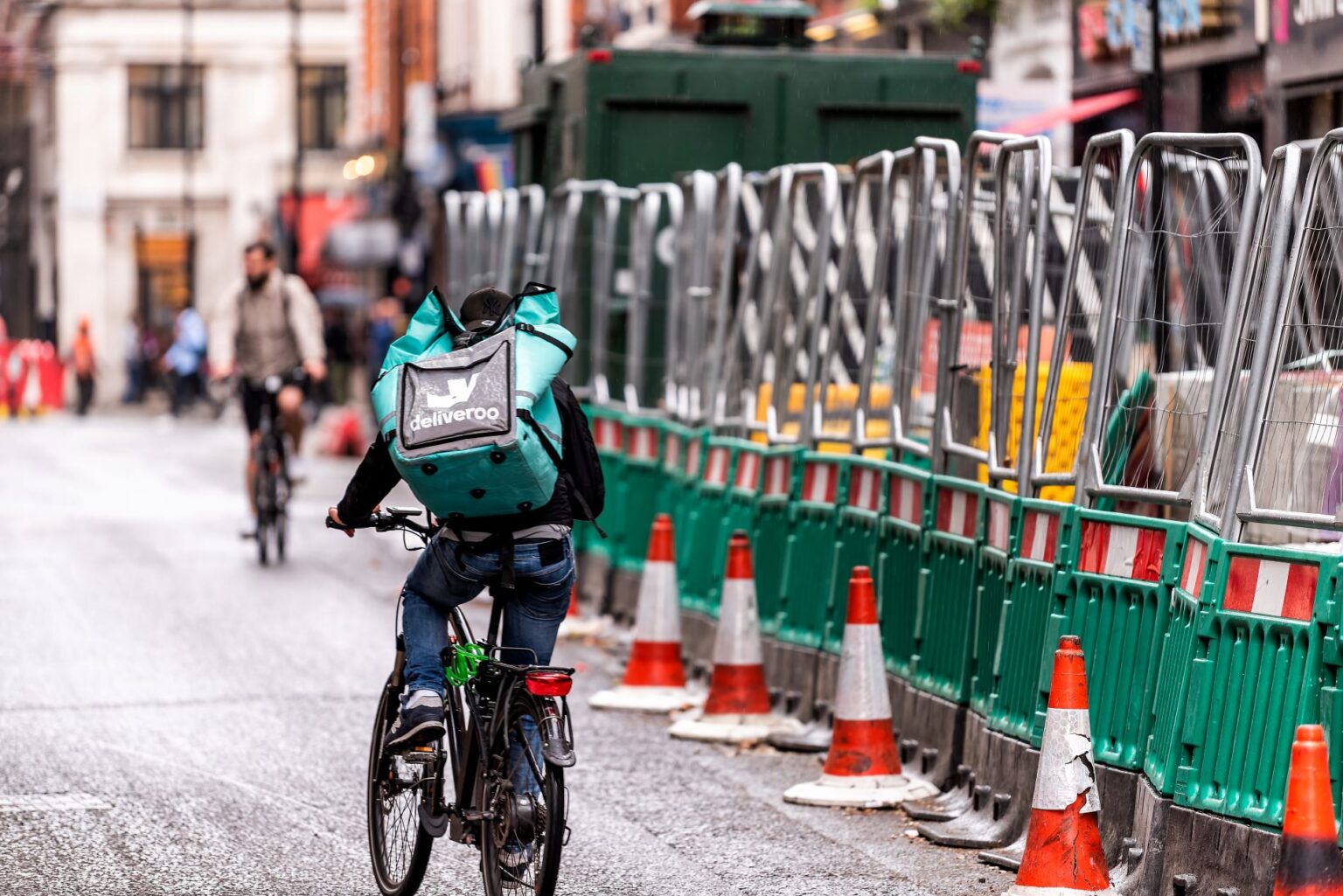It’s been a decade since Deliveroo earned a coveted spot on our 2015 Startups 100 list as one of the UK’s most promising disruptors.
Now, the innovative food delivery app is set to be acquired by US rival DoorDash in a deal worth £2.9bn, according to the BBC.
Often described as the American equivalent of Deliveroo, DoorDash is already a giant in the global food delivery space. With this acquisition, the combined business will operate in over 40 countries, securing a dominant position in the market.
Deliveroo co-founder Will Shu has described the deal as “transformative”. But some analysts are saying it bodes ill for the future of UK startup investment. So how did one of our most high-profile tech successes end up on the menu for a US competitor?
DoorDash snaps up Deliveroo
Earlier today, BBC News confirmed that Deliveroo has agreed to be taken over by its US rival, DoorDash.
The deal values the business at £2.9bn, with an agreed price of 180p per share. This marks a 44% increase on Deliveroo’s share price from earlier takeover talks in April.
That said, it’s a steep drop from Deliveroo’s original 390p share price when it launched on the London Stock Exchange in April 2021.
“The combination with Deliveroo will strengthen DoorDash’s position as a leading global platform in local commerce,” the two companies said.
Regarding the acquisition, Will Shu, chief executive and co-founder of Deliveroo, told the BBC that he was “very proud of everything we have achieved as a standalone business”, adding “the enlarged group will have the scale to invest in product, technology and the overall consumer value proposition.”
While it seems the takeover is within reach of closure, it still requires shareholder approval to be a done deal.
Why is Deliveroo selling up shop?
Deliveroo began as a humble garage startup called ‘Roo Foods’ in 2013. Co-founded by Will Shu and Greg Orlowski, its mission was simple: “food you love delivered to your door” in under 30 minutes.
The London-based startup quickly expanded to cities across Europe and the Middle East, eventually establishing Deliveroo as one of the UK’s most celebrated tech unicorns. It featured on the Startups 100 Index in 2015.
But despite its early success, it hasn’t all been easy. Following the pandemic, the company faced stagnating growth amid mounting competition from global players like Just Eat and Uber Eats. Deliveroo’s 2021 IPO, once seen as a major milestone, was considered a flop, with some even calling it the “worst IPO in London’s history.”
In the years following, Deliveroo has been under increasing pressure from investors. While Deliveroo still pulled in around £2bn in revenue in 2024, it lags far behind its US rival DoorDash, which took in roughly £8bn over the same period.
For DoorDash, though, this is a strategic acquisition. The US-based delivery giant is keen to expand in the UK and Europe, and Deliveroo offers ready-made infrastructure, a trusted brand, and a loyal customer base in nine countries. Despite its challenges, Deliveroo is clearly a valuable asset, and the £2.9bn offer is proof of that.
Still, all of this raises questions about the competitiveness of UK tech. As the latest in a series of high-profile acquisitions this year, is it a signal that UK startups are struggling to match the pace of their global rivals?
What the Deliveroo sale means for UK startups
Deliveroo’s acquisition is one of the biggest UK tech exits in recent years. On the one hand, it’s a serious win: homegrown startup scores multibillion-pound valuation. But it also reveals potentially worrying truths about the UK startup ecosystem.
The deal could be seen by some as validation for the UK’s ability to produce word-class startups, but others will see it as a cautionary tale.
Deliveroo was once tipped to become the UK’s answer to Uber or Amazon. But it struggled to scale and stay profitable post-IPO. The decision to sell, especially to a US competitor, may suggest that UK startups are facing barriers when it comes to scale-up. In particular, struggles with venture capital (VC) confidence in the UK.
Several British startups have recently been snapped up by US firms. Runna, the popular running app, was acquired by Strava last month.
These acquisitions are a “dream come true” for their founders. But they may also be a reflection of UK startups struggling to access the late-stage funding, innovation incentives, or market confidence they need to succeed independently.



